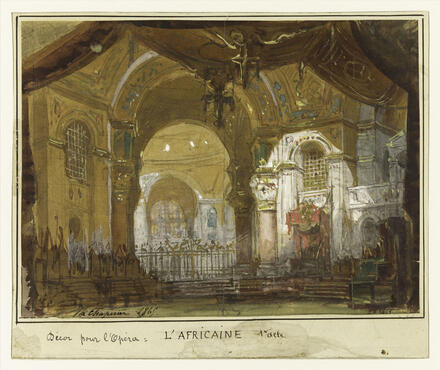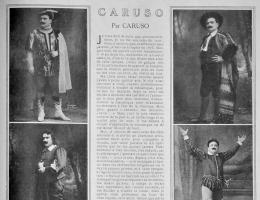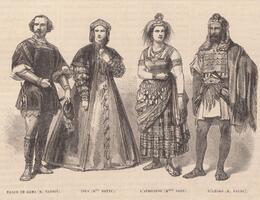L'Africaine

Grand opéra en 5 actes créé au Théâtre impérial de l'Opéra (salle Le Peletier) le 28 avril 1865.
After the successes at the Opéra-Comique of L’Étoile du Nord (1854), then Le Pardon de Ploërmel (1859), Meyerbeer’s grand opera, L’Africaine, was eagerly awaited. The work took him more than twenty-five years to complete (until his death in 1864). Begun in 1837 under the title Vasco de Gama ou le Cap des tempêtes, the opera was reworked many times before it was finally staged posthumously at the Paris Opéra on 28 April 1865, in a version finalised by Fétis. The work, which received much advance publicity, was created by some of the greatest singers of the time: the famous baritone-bass Jean-Baptiste Faure (Nélusko) shared the bill with the tenor Emilio Naudin (Vasco de Gama) and the sopranos Marie Sasse (Sélika) and Marie Battu (Inès). Inspired by Camoens’s epic poem Os Lusìades, Scribe’s libretto presents fictional events in the life of the Portuguese navigator Vasco da Gama, credited with discovering a sea route to India. The explorer’s adventures serve as the starting point for a plot marked by the current vogue for exoticism, with a score that is both lyrical and picturesque, and characterised by particularly luxuriant sonorities. The story of the thwarted loves of Sélika, Nélusko, Inès and Vasco, marked by jealousy and violence, give rise to several bravura pieces (Sélika’s Act II Air du sommeil, “Sur mes genoux, fils du soleil”, the Act IV love duet, “Ô transports, ô douce extase”), as well as some of the most colourful pages in the operatic pantheon of the time (notably the Indian march from Act IV).
Scientific publications
Publication




